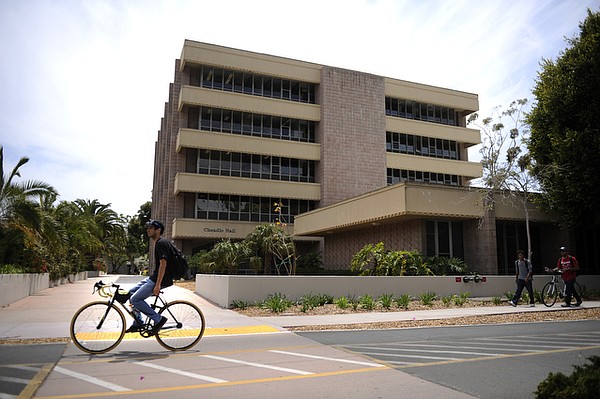Accused Student Sues UCSB in Assault Case

A UCSB freshman is suing the school after being indefinitely suspended following an incident that occurred last August. About a month before he was scheduled to begin classes, UCSB student John Doe, as he is identified in court files, was arrested in San Diego for allegedly hitting his girlfriend. All criminal charges were dropped shortly after, and the woman told authorities her accusation was false, court files state.
UCSB’s Judicial Affairs, however, had already begun its own investigation of the incident, suspending the student and barring him from entering campus until the case was adjudicated. Federal law stipulates these cases must be adjudicated within 60 days, but seven months later, Doe’s case is still open.
In early January, Robert P. Ottilie, Doe’s attorney, took the issue to Santa Barbara County Superior Court. He argued the school has well surpassed the 60-day maximum that Title IX law allots for these cases. (Ottilie has also filed a claim at the 2nd District Court of Appeal.) Meanwhile, Doe remains unable to begin his freshman year at UCSB.
This incident, which occurred in San Diego, involved an edited video posted to Twitter by Doe’s former girlfriend, in which it appears that Doe hits her as the video goes dark, according to court files. The footage was sent to UCSB’s Office of Student Affairs, which forwarded it to the UCSB Police Department. It is unclear who sent in the video, but Ottilie claimed it was not Doe’s ex-girlfriend.
In late August, UCSB police officers drove to San Diego to arrest Doe. “I don’t understand why the university never contacted the San Diego police,” Ottilie said. “Instead they drove seven hours to arrest him.”
According to Ottilie, Margaret Klawunn, UCSB’s Vice Chancellor of Student Affairs, also made the drive to personally hand Doe a letter. At the time, Ottilie said, Doe was placed in solitary confinement at a juvenile detention center. The letter stated Doe was not allowed to enter UCSB’s campus on the ground he posed a threat to the community, according to Ottilie, and university officials also informed Doe the suspension order would remain in place until the Title IX Office completed its investigation and made a decision.
Santa Barbara attorney and UCSB alum Greg Lowe took an interest in this case after he happened to be in court when it was being heard. He sent a letter to UCSB administrators, saying he was “concerned that the young man in question finds himself in a bureaucratic and political quagmire.” He urged UCSB administration to “decide his fate rather than letting him bleed to death drop by drop.”
According to UCSB spokesperson Andrea Estrada, Judicial Affairs considered this a sexual harassment/sexual violence case. “While the University cannot comment on pending litigation,” she said in a statement, “we can say unequivocally that the safety and wellbeing of our students is our highest priority. We are committed to policies that protect our campus community and survivors of assault while affording fair and consistent due process to those who have been accused.”
The complicated thing about Judicial Affairs cases is that they operate behind closed doors – there is no public record. This administrative process has received widespread scrutiny in recent years after sexual assault victims contended university administrators essentially swept their cases under the rug. At the same time, accused students — charged with anything from plagiarism to assault — have argued Judicial Affairs offices denied them their due process.
By mid-January, Ottilie claimed UCSB had yet to conduct a single interview with any third party witness involved in the case. Determined to begin his education, Doe expressed desire to attend community college until this investigation was complete, but UCSB administration told him that to do so, he would have to give up his admission to the university, Ottilie said. Currently, Doe is living in San Diego.
“These undisputed facts could lead a reasonable person to conclude the suspension without charges has encouraged certain kids to give up and leave,” Ottilie said. Doe grew up sleeping in storage closets and on couches in a San Diego deli, Ottilie explained. His father, who is black, is serving a life sentence in prison. His mother, a Mexican immigrant, has a fourth grade education. In high school, he worked three jobs. Ottilie said he is examining whether race and socio-economic status played a role in “the handling of this case.”
When asked, Estrada iterated in an email, “the University handles all conduct cases in a fair, thorough and consistent manner, treating everyone with dignity and respect.”



